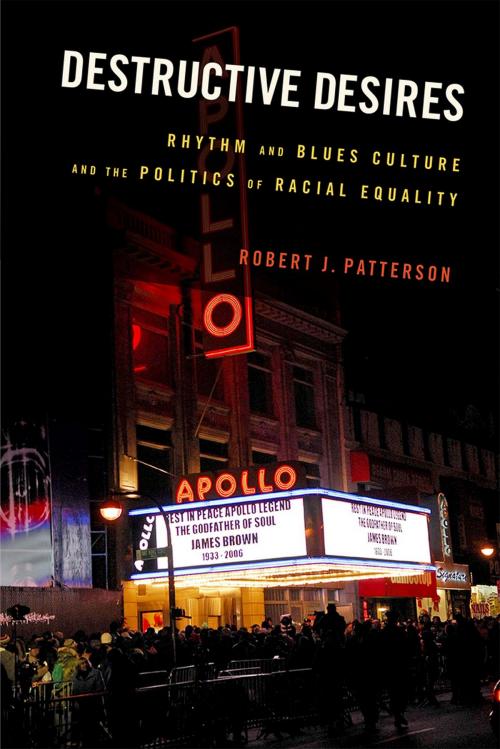Destructive Desires
Rhythm and Blues Culture and the Politics of Racial Equality
Nonfiction, Entertainment, Music, Music Styles, Jazz & Blues, Soul| Author: | Robert J. Patterson | ISBN: | 9781978803602 |
| Publisher: | Rutgers University Press | Publication: | April 5, 2019 |
| Imprint: | Rutgers University Press | Language: | English |
| Author: | Robert J. Patterson |
| ISBN: | 9781978803602 |
| Publisher: | Rutgers University Press |
| Publication: | April 5, 2019 |
| Imprint: | Rutgers University Press |
| Language: | English |
Despite rhythm and blues culture’s undeniable role in molding, reflecting, and reshaping black cultural production, consciousness, and politics, it has yet to receive the serious scholarly examination it deserves. Destructive Desires corrects this omission by analyzing how post-Civil Rights era rhythm and blues culture articulates competing and conflicting political, social, familial, and economic desires within and for African American communities. As an important form of black cultural production, rhythm and blues music helps us to understand black political and cultural desires and longings in light of neo-liberalism’s increased codification in America’s racial politics and policies since the 1970s. Robert J. Patterson provides a thorough analysis of four artists—Kenneth “Babyface” Edmonds, Adina Howard, Whitney Houston, and Toni Braxton—to examine black cultural longings by demonstrating how our reading of specific moments in their lives, careers, and performances serve as metacommentaries for broader issues in black culture and politics.
Despite rhythm and blues culture’s undeniable role in molding, reflecting, and reshaping black cultural production, consciousness, and politics, it has yet to receive the serious scholarly examination it deserves. Destructive Desires corrects this omission by analyzing how post-Civil Rights era rhythm and blues culture articulates competing and conflicting political, social, familial, and economic desires within and for African American communities. As an important form of black cultural production, rhythm and blues music helps us to understand black political and cultural desires and longings in light of neo-liberalism’s increased codification in America’s racial politics and policies since the 1970s. Robert J. Patterson provides a thorough analysis of four artists—Kenneth “Babyface” Edmonds, Adina Howard, Whitney Houston, and Toni Braxton—to examine black cultural longings by demonstrating how our reading of specific moments in their lives, careers, and performances serve as metacommentaries for broader issues in black culture and politics.















